politics
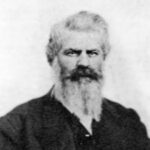 Politics can be a touchy subject. Many arguments have come from political disagreements, and in fact, a number of actual fights and even wars have been fought over political disagreements. The Civil War was one sch war fought over political views. During that time there were also a number of private disputes as well. Sumner Pinkham was in volved on one of those disputes. Sumner Pinkham was born in 1820 in the state of Maine and was raised in Wisconsin. Very little, if anything, is known about his early life. He married Laurinda Maria Atwood in Nebraska on November 4, 1842. In 1849, Pinkham joined the California gold rush and then spent time in Oregon before making his way to the booming gold rush camp of Idaho City in 1862. Pinkham was a big man…powerfully built, who stood six feet two inches tall and had a barrel chest. He was also prematurely gray, making him look older than he really was.
Politics can be a touchy subject. Many arguments have come from political disagreements, and in fact, a number of actual fights and even wars have been fought over political disagreements. The Civil War was one sch war fought over political views. During that time there were also a number of private disputes as well. Sumner Pinkham was in volved on one of those disputes. Sumner Pinkham was born in 1820 in the state of Maine and was raised in Wisconsin. Very little, if anything, is known about his early life. He married Laurinda Maria Atwood in Nebraska on November 4, 1842. In 1849, Pinkham joined the California gold rush and then spent time in Oregon before making his way to the booming gold rush camp of Idaho City in 1862. Pinkham was a big man…powerfully built, who stood six feet two inches tall and had a barrel chest. He was also prematurely gray, making him look older than he really was.
Pinkham was a conservative Republican, a Unionist, and an abolitionist, which put him on the opposite side of the majority of Boise Basin mining camps political views, which were predominantly Democrat. When Pinkham arrived in the Idaho City area, Idaho was still a part of Washington Territory, and the Boise Basin was located in Idaho County, of which Florence was the county seat. Florence was located a way away from the new mining basin, so the Washington Legislature established Boise County on January 29, 1863.
After being in the area for a while, and becoming known for his political views, the Governor of Washington was assigning commissioners and officers to the newly established county, and Pinkham was one of them, assigned to serve as the County Sheriff. On March 4, 1863, Congress created Idaho Territory. At that time Boise County exceeded the other counties in both area and in population. Those in office in Boise County at the time, including Pinkham, retained their positions until the territorial government could be officially organized. Pinkham appointed Orlando “Rube” Robbins, who shared his political opinions, as his deputy in August 1863. Robbins would later make himself known as one of Idaho’s greatest lawmen.
By this time, the Civil War was raging back East, and the area miners began to choose sides, around the Union and Confederate causes. This, dueled with whiskey, caused flair-ups between North and South sympathizers, bring with it fist fights, knife fights, and sometimes gun battles as they used force to show their opinions. That kept both Pinkham and his deputy, Rube Robbins, busy breaking up fights and locking up drunken loudmouths as they threatened to fight it out…to the death. The area being predominately Democrat often placed Pinkham at odds with his constituents due to his staunch Unionist views, Republican politics, and tough law enforcement. His list of enemies grew. Nevertheless, both Pinkham’s enemies and his most loyal friends knew that he was a man they shouldn’t mess with when he undertook to enforce the law, which he did with an iron hand.
His greatest enemy was a Southern gunfighter named Ferdinand “Ferd” Patterson. On one occasion, while Patterson was partying with some of his friends in Idaho City, they took unlawful possession of a brewery in Idaho City. Sheriff Pinkham was called by the owner to remove the rowdy group. When Pinkham entered the brewery, he was met with violent resistance. Pinkham and Patterson immediately hated each other. Patterson was Southerner who was crooked by nature, and Pinkham was a Northerner who tended to be self-righteous. In the end, Pinkham was successful, and Patterson was arrested. When Pinkham lost his October 1864 for re-election as Boise County Sheriff, in a bitter contest between the Democratic successionists and Republican candidates. Pinkham was defeated by A O Bowen by a comfortable majority, and Patterson celebrated, as the last of the ballots were being counted. When Patterson encountered his old nemesis, he began rubbing it in. Pinkham, who was in a rage, swung at Patterson, hitting him in the jaw and throwing the gambler off the street and into the gutter. After that, Pinkham walked away. Everyone expected Patterson to retaliate, but he let it go…for then. Pinkham left Idaho City, following the lost election, heading to Illinois to visit his dying mother. When he returned in 1865, everyone figured they would have it out, but it didn’t happen then either.
After the Civil War ended, Pinkham held a huge Fourth of July party. The crowds were mostly festive, with fireworks blazing and booze abundant. The celebration included a brass band, speeches, patriotic songs, a picnic, and a parade with Pinkham leading the way through town. For the victorious Yankees, it was a proud day. But, for the sullen Confederate sympathizers…not so much. To make matters worse, the Yankee’s heckled the “Blue Bellies” throughout the day. Patterson was furious as he watched Pinkham leading the parade through town. Pinkham singing, “Oh, we’ll hang Jeff Davis to a sour apple tree!” was the last straw. Patterson yelled out to the ex-sheriff that if “he didn’t shut his mouth, he’d shut it for him.” Pinkham invited him to try, and he did. A brief fist fight between the two men resulted in the flag falling into the dust of the street. Some witnesses swore they saw Patterson spit on it, and others attested they heard Pinkham swear he would kill Patterson for that, but nothing more came of it at that time. Several weeks later, on Sunday, July 23rd, Pinkham took a hired carriage from Idaho City to the Warm Springs Resort, which was about two miles west of town. Upon his arrival, Pinkham joined a number of his Unionist friends in the saloon, where they were heard singing patriotic and anti-Confederate songs.
Sometime later, Patterson entered the resort while Pinkham was paying his bill. Initially, Patterson ignored Pinkham, but by the time the ex-sheriff exited the resort, Patterson was outside waiting for him. Patterson said the word “draw” and then taunted Pinkham by calling him an “Abolitionist son-of-a-b***h.” Who drew first is in dispute, but in the end, Pinkham was dead. Patterson quickly fled but was immediately followed by several lawmen. Rube Robbins was the first to catch up to him, about 14 miles from Idaho City. Patterson surrendered to Robbins, who turned the killer over to Sheriff Bowen, who was next on the scene. Bowen and his men took over and escorted Patterson back to Idaho City.
A mob wanted to lynch him, and maybe that would have been justice, because in the “sham” trial held in a predominately Democrat area, Patterson was acquitted, and with that, justice for Pinkham would never be served. Ferd Patterson was tried for Pinkman’s murder at the beginning of November 1865. In the six-day trial, defense attorney Frank Ganahl claimed his client acted in self-defense, arguing that Pinkham was lying in wait 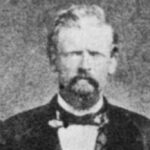 for him. Alternatively, Pinkham’s friends testified that he tried to avoid a showdown and that Patterson came to Warm Springs with the explicit purpose of murdering Pinkham. It took only an hour and a half for the jury to acquit Patterson. Pinkham’s funeral was the largest and most impressive funeral ever seen in the mining camp. It was reported that over 1,500 mourners followed his hearse to the graveyard. Meanwhile, knowing he was in extreme danger, Patterson quickly fled Idaho City after his acquittal. He was killed in Walla Walla, Washington, the next year, by Thomas Donahue, an area policeman, in was thought by many to be an assassination. Donahue was charged with the murder of Patterson, but escaped from jail while awaiting trial. There apparently was little interest in tracking him down. He disappeared never to be heard from again.
for him. Alternatively, Pinkham’s friends testified that he tried to avoid a showdown and that Patterson came to Warm Springs with the explicit purpose of murdering Pinkham. It took only an hour and a half for the jury to acquit Patterson. Pinkham’s funeral was the largest and most impressive funeral ever seen in the mining camp. It was reported that over 1,500 mourners followed his hearse to the graveyard. Meanwhile, knowing he was in extreme danger, Patterson quickly fled Idaho City after his acquittal. He was killed in Walla Walla, Washington, the next year, by Thomas Donahue, an area policeman, in was thought by many to be an assassination. Donahue was charged with the murder of Patterson, but escaped from jail while awaiting trial. There apparently was little interest in tracking him down. He disappeared never to be heard from again.
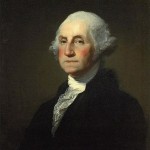 George Washington was not just our first president, but he was also an incredibly intelligent man. Normally, when George Washington spoke, people listened. Maybe his leadership was a big part of what made our system of government work so well, but there was one thing that everyone decided to ignore…his warnings about political parties. George Washington was against them, you see. He wasn’t just against one side of the political party system. He was against having political parties at all. He was so adamantly against them, that he remained nonpartisan throughout his entire presidency.
George Washington was not just our first president, but he was also an incredibly intelligent man. Normally, when George Washington spoke, people listened. Maybe his leadership was a big part of what made our system of government work so well, but there was one thing that everyone decided to ignore…his warnings about political parties. George Washington was against them, you see. He wasn’t just against one side of the political party system. He was against having political parties at all. He was so adamantly against them, that he remained nonpartisan throughout his entire presidency.
In his farewell address, President Washington said the following about partisan politics, “It serves always to distract the public councils and enfeeble the public administration. It agitates the community with ill-founded jealousies and false alarms, kindles the animosity of one part against another, foments occasionally riot and insurrection. It opens  the door to foreign influence and corruption, which finds a facilitated access to the government itself through the channels of party passions. Thus, the policy and the will of one country are subjected to the policy and will of another.” Any of this sound familiar? Of course, it does. It is exactly what we have going on today.
the door to foreign influence and corruption, which finds a facilitated access to the government itself through the channels of party passions. Thus, the policy and the will of one country are subjected to the policy and will of another.” Any of this sound familiar? Of course, it does. It is exactly what we have going on today.
I agree with President Washington, who worried that political parties would become too powerful, rob the people of their control over their own government, and distract everyone from what they should really be focusing on. In today’s political arena, that is exactly what is going on. People are being indited as a way of weaponizing politics. If someone doesn’t agree with the other party, or can’t be controlled, they are very likely to be politically ostracized and attacked. Since George Washington spoke those words, 250 years have passed, and there are people saying that they don’t trust either political party. I am one of those. I suppose some 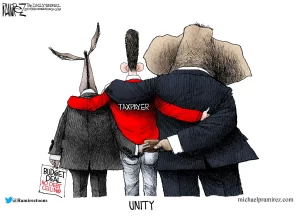 people would wonder how we would elect our leaders. To them, I say, “How about electing them on their merits!!” There are people out there who will simply vote for the party they are affiliated with, no matter what their candidate stands for. They vote the way they vote, simply because the candidate they choose is from their party. What a horrible mistake that is. Isn’t it time that we find out what our candidates really stand for, and then vote our conscience? Isn’t it time we hold our politicians accountable for their actions? I think it is, but then we would have to find a way to get the correct information, and we already know that we can’t trust the media!! But that is another story.
people would wonder how we would elect our leaders. To them, I say, “How about electing them on their merits!!” There are people out there who will simply vote for the party they are affiliated with, no matter what their candidate stands for. They vote the way they vote, simply because the candidate they choose is from their party. What a horrible mistake that is. Isn’t it time that we find out what our candidates really stand for, and then vote our conscience? Isn’t it time we hold our politicians accountable for their actions? I think it is, but then we would have to find a way to get the correct information, and we already know that we can’t trust the media!! But that is another story.
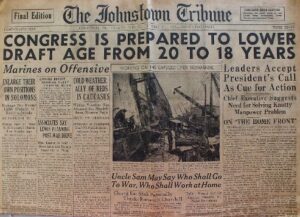 Before the summer of 1971, a person had to be 21 years old in order to vote. That was before the 26 Amendment was signed into law, on July 5, 1971, by President Richard Nixon. The amendment had passed through the Senate, House, and states in record time, lowered the voting age from 21 to 18, but it was not a quick victory. The battle was hard-fought, mostly by young people between the ages of 18 and 21, who were eligible to be drafted, but didn’t have the right to vote. The battle had raged since World War II.
Before the summer of 1971, a person had to be 21 years old in order to vote. That was before the 26 Amendment was signed into law, on July 5, 1971, by President Richard Nixon. The amendment had passed through the Senate, House, and states in record time, lowered the voting age from 21 to 18, but it was not a quick victory. The battle was hard-fought, mostly by young people between the ages of 18 and 21, who were eligible to be drafted, but didn’t have the right to vote. The battle had raged since World War II.
When the United States joined in the World War II war effort, it didn’t take long to find that they were going to need more men. It wasn’t that so many were killed, although that certainly was a problem too, but less than a year in, President Roosevelt and his administration faced a serious dilemma. They had 20 million eligible men who were registered for the draft, but 50% of them were rejected either for health reasons or because they were deemed illiterate. The United States had to have more men, and there was only one place to get them…expand the eligible draft ages. So, on November 11, 1942, Congress approved lowering the minimum draft age to 18 and raising the maximum to 37. Soon after, the slogan “Old enough to fight, old enough to vote” was born. For the over 21 draftees, the right to vote was already theirs, but the 18 to 20 year olds did not, and they felt like if they could be asked to fight and die, they should be able to vote…like ither adults, and much like the fight we have today with “old enough to fight, old enough to drink.” I’m not sure the current protestors will win their battle, however.
The changing of the voting age didn’t come easy either. Many people thought that 18-year-olds were just too young to understand politics. West Virginia congressman Jennings Randolph became the first supporter for lowering the age. In 1942, he introduced the first of 11 bills he sponsored over his tenure in Congress. Despite support from First Lady Eleanor Roosevelt and a number of senators and representatives, Congress failed to pass any legislation. Nevertheless, a popular movement was growing. Finally, in 1943, Georgia became the first 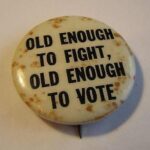 state to lower the voting age for state and local elections to 18, with Kentucky following suit in 1955. It broke the ice. While these young voters couldn’t vote for US offices, they had a say in their own state. The movement to lower the voting age began to gain grassroots traction when newly elected President Dwight D Eisenhower expressed his support in his 1954 State of the Union address, “For years our citizens between the ages of 18 and 20 have, in time of peril, been summoned to fight for America. They should participate in the political process that produces this fateful summons. I urge Congress to propose to the States a constitutional amendment permitting citizens to vote when they reach the age of 18.”
state to lower the voting age for state and local elections to 18, with Kentucky following suit in 1955. It broke the ice. While these young voters couldn’t vote for US offices, they had a say in their own state. The movement to lower the voting age began to gain grassroots traction when newly elected President Dwight D Eisenhower expressed his support in his 1954 State of the Union address, “For years our citizens between the ages of 18 and 20 have, in time of peril, been summoned to fight for America. They should participate in the political process that produces this fateful summons. I urge Congress to propose to the States a constitutional amendment permitting citizens to vote when they reach the age of 18.”
While it was gaining momentum, it was still slow-going. It would not be until much of the American public became disillusioned by the lengthy and costly war in Vietnam in the mid 1960s that the movement to lower the voting age gained widespread public support. “Old enough to fight, old enough to vote” found its way back into the American consciousness in the form of protest signs and chants. The push was revived, and then-Senator Randolph and other politicians continued to push legislation to lower the age to 18, including passing an amendment into 1965’s Voting Rights Act in 1970 that applied lowering the age to federal, state, and local elections. As the amendment was being signed into law, President Nixon thought it might be problematic. He issued a public statement that the federal government regulating state and local elections was likely to be “deemed unconstitutional and that only an amendment would secure this right.” He was right, and the amendment was struck down in the 1970 Supreme Court case Oregon v. Mitchell, ruling that the federal government could not make mandates for state and local elections. That meant that the fight continued. The initial result was a mixed system in which state and local elections had different rules than federal elections. That brought with it logistical problems on election days in states across the country, bringing more protests and lobbying efforts. The biggest problem was the 18 to 20 year olds worrying that their draft numbers were being called despite having no say in electing their representation. “Project 18” continued to put the pressure on legislators to take action. Marches were held all over the nation.
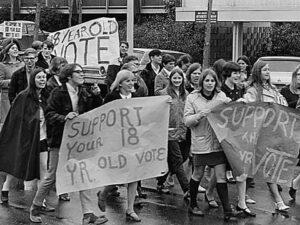
Finally, their hard work paid off. On March 10, 1971, the Senate voted unanimously in favor of a Constitutional amendment lowering the voting age to 18, followed by an overwhelming majority of the House voting in favor on March 23, 1971. The states quickly ratified the amendment, and it took effect on July 1, 1971, nearly 30 years after Senator Randolph first proposed lowering the voting age. In response to its passing, the senator remarked, “I believe that our young people possess a great social conscience, are perplexed by the injustices which exist in the world and are anxious to rectify these ills.” Finally, those who were “old enough to fight” could also vote.

 In a day and age when more and more young people are so intent on “fitting in” that they lose sight of who they really are, my grand niece, Raelynn Masterson is, refreshingly, not a follower. Raelynn remains true to herself, and she is just fine with who she is. Her mom tells me that she is a lot like both her parents, and while that may be true, I don’t think it is genetics, as much as it is good upbringing. Raelynn figures that if you like her…great, but if not…it’s your problem, not hers. I think that is the best way to be.
In a day and age when more and more young people are so intent on “fitting in” that they lose sight of who they really are, my grand niece, Raelynn Masterson is, refreshingly, not a follower. Raelynn remains true to herself, and she is just fine with who she is. Her mom tells me that she is a lot like both her parents, and while that may be true, I don’t think it is genetics, as much as it is good upbringing. Raelynn figures that if you like her…great, but if not…it’s your problem, not hers. I think that is the best way to be.
Raelynn is a has such a sweet attitude. She is a good big sister, and is always kind to her siblings. She is helpful when they need it, and that is especially nice when their parents are at work, and her siblings need some advise and encouragement. Their parents know that they are in good hands when Raelynn is there with them. There is, of course, a difference between a sweet attitude, and a pushover, and Raelynn is no push over. Once her mind is made up, it is and she won’t be moved. If you try to cross her, and you make the mistake of making this girl mad…well, as her mom says, “I’ll pray for you.” Personally, I have not seen that side of Raelynn, but then we are not really on opposite sides of things, and maybe I think I’m glad we aren’t too.
As with most people, the things going on in our world have caused Raelynn to look more closely into politics. Her parents have encouraged their children to look into a matter, and make an informed decision about where you stand. That’s a good way to be. We have too many blind followers, as it is. Raelynn, and her siblings, Matt and Anna, as well as Christina (who is grown and living on her own), are not required to agree with their parents views on things. Their parents, Rob and Dustie, think it is important for them to make up their own minds, even when they don’t match their parents views. Raelynn’s opinions on politics don’t always match those of her parents, but she is required to look deeper into things before forming her opinions…using legitimate sites (or, as close as you can get these days). There have been a few heated debates between Raelynn and her brother, Matt, which have required a parental mediator at times. My guess is that there have been some between her and her parents too, but that really is the only way to learn about politics and I’m sure that as time goes by, her opinions will grow and change, whether they ever match those of her parents or not.
The family recently got a dog, and as often happens with pets, Azura has decided that Raelynn is “her human.” 
 They are so close, and almost inseparable when Raelynn is home. It was completely unexpected, but if Rob or Dustie are looking for one, all they need to do is find the other. Raelynn and Azura are practically joined at the hip. The hardest part about this “exceptionally close” relationship, is that whenever Raelynn is gone, Azura is totally miserable until she gets home!! That could be really bad when school starts again. Azura just loves Raelynn so much. I can see why, because we all do too. Today is Raelynn’s 17th birthday. Happy birthday Raelynn!! Have a great day!! We love you!!
They are so close, and almost inseparable when Raelynn is home. It was completely unexpected, but if Rob or Dustie are looking for one, all they need to do is find the other. Raelynn and Azura are practically joined at the hip. The hardest part about this “exceptionally close” relationship, is that whenever Raelynn is gone, Azura is totally miserable until she gets home!! That could be really bad when school starts again. Azura just loves Raelynn so much. I can see why, because we all do too. Today is Raelynn’s 17th birthday. Happy birthday Raelynn!! Have a great day!! We love you!!
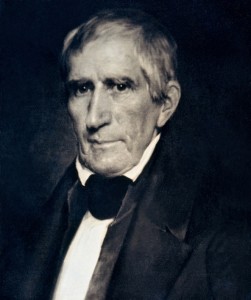 When we think of the president of the United States…in general terms, we often wonder if he will be good enough to be re-elected and serve the maximum term of eight years. We seldom think about whether or not he will finish his first year…or even month for that matter. And few of us can name the president with the sad title of being the president of the United States for the shortest term. Nevertheless, that is a record that has to be held by someone, and that man was William Henry Harrison, who was our 9th President. Harrison’s inaugural speech, delivered on a bitterly cold March morning, lasted one hour and forty five minutes. Harrison wasn’t really feeling well at the time, and went to bed at the end of inauguration day with a bad cold. The cold quickly developed into what would become a fatal case of pneumonia. I have to wonder if he would have been just fine in this day and age of modern medicine. Not everyone gets pneumonia these days, but most of those who do, survive and go on to lead long lives. Pneumonia isn’t the death sentence these days that it used to be.
When we think of the president of the United States…in general terms, we often wonder if he will be good enough to be re-elected and serve the maximum term of eight years. We seldom think about whether or not he will finish his first year…or even month for that matter. And few of us can name the president with the sad title of being the president of the United States for the shortest term. Nevertheless, that is a record that has to be held by someone, and that man was William Henry Harrison, who was our 9th President. Harrison’s inaugural speech, delivered on a bitterly cold March morning, lasted one hour and forty five minutes. Harrison wasn’t really feeling well at the time, and went to bed at the end of inauguration day with a bad cold. The cold quickly developed into what would become a fatal case of pneumonia. I have to wonder if he would have been just fine in this day and age of modern medicine. Not everyone gets pneumonia these days, but most of those who do, survive and go on to lead long lives. Pneumonia isn’t the death sentence these days that it used to be.
William Harrison was the last president born as an English subject before the American Revolution. After that time, it became law that the president must be a natural born citizen, something that has sparked bitter battles in these modern times. He hailed from Virginia, and attended college intending to become a doctor, but opted to join the army before finishing his degree. President John Adams took note of Harrison’s exemplary service in the Indian Wars of the Northwest Territories. In 1801, President Adams appointed him governor of the Northwest Territories, which is now Indiana and Illinois. Harrison later fought in the Battle of the Thames River during the War of 1812. After that time, he decided to go into politics, and went on to become a congressman and the ambassador to Colombia before running with John Tyler on the Whig Party ticket in the presidential election of 1840, which he won, but this would not prove to be a long term in office for him. In fact, his death came exactly one month after he was inaugerated into office.
I have to wonder what things he might have done differently than his running mate, John Tyler did. Harrison was 68 years and 23 days old when he took office. He was the oldest president to take office until Ronald 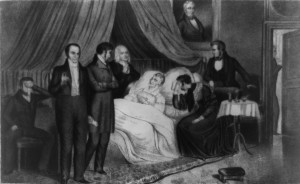 Reagan in 1981. After his passing, there was a brief constitutional crisis, because this had never happened before, and it had to be decided, who would take over. The solution was not widely accepted, and there were disputes as to the presidential line of succession, with regard to the Constitution up until the passage of the 25th Amendment in 1967. William Henry Harrison was the grandfather of Benjamin Harrison, who was the 23rd President from 1889 to 1893, so his line did have a second chance at the course that the country would take, even though he was not directly involved. Of course, there is nothing to indicate that Benjamin would have had the same values as William did. Things change over the years, but he was a Republican…a good thing in my opinion.
Reagan in 1981. After his passing, there was a brief constitutional crisis, because this had never happened before, and it had to be decided, who would take over. The solution was not widely accepted, and there were disputes as to the presidential line of succession, with regard to the Constitution up until the passage of the 25th Amendment in 1967. William Henry Harrison was the grandfather of Benjamin Harrison, who was the 23rd President from 1889 to 1893, so his line did have a second chance at the course that the country would take, even though he was not directly involved. Of course, there is nothing to indicate that Benjamin would have had the same values as William did. Things change over the years, but he was a Republican…a good thing in my opinion.
 In this day of the internet, cell phones, television, and radio, a new form of patriotism has emerged. The rights our American soldiers fought for are in peril. In a year in which many Americans were offended by literally everything, and the internet, specifically Facebook, has become one of the greatest sounding boards there is, everyone has stepped up to the plate to state their views and yes, even to hear the views of others. Of course, hearing the views of other people, is not always something that is well received. Sometimes, people lose sight of the fact that since we each own our own Facebook page, we also have the right to say what we want to say. Others may not agree, but that doesn’t matter, because this is our page…our right to free speech.
In this day of the internet, cell phones, television, and radio, a new form of patriotism has emerged. The rights our American soldiers fought for are in peril. In a year in which many Americans were offended by literally everything, and the internet, specifically Facebook, has become one of the greatest sounding boards there is, everyone has stepped up to the plate to state their views and yes, even to hear the views of others. Of course, hearing the views of other people, is not always something that is well received. Sometimes, people lose sight of the fact that since we each own our own Facebook page, we also have the right to say what we want to say. Others may not agree, but that doesn’t matter, because this is our page…our right to free speech.

Of course, people with differing views have the right to challenge our views…to state their own case, as it were, but they don’t have the right to challenge our right to speak our own opinion on our own page. If we are offended by the views of another person, we need to move past the post. Never is this more evident than when the opinions of one person in a family offends another, and they decided to take things to the next level…unfriending. I won’t do that, because while I will state my opinion, and I will respect the rights of my friends to post what they choose, and to debate my opinion, the family connection is far too important to me to argue in 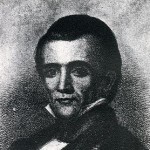 such a way.
such a way.
In history, patriots had to go to the place they were going to protest. And of course, by the time they could get there, it was probably too late to protest. I suppose maybe our politicians were more honest back then, or maybe we just didn’t know all that was going on. It has been said that some presidents would never have been elected if we could have seen them. That is so true, and sometimes I think maybe that should be how it is today. If race, gender, and maybe even party affiliation weren’t able to be seen, who would we elect? That might be something to think about. Maybe we need to stop giving a pass because of race or gender, and make the politicians do what’s right.
 While Bob and I were in Corpus Christi, Texas in March of 2006, we had the opportunity to visit the USS Lexington, better known now, as The Blue Ghost. The ship was originally known as the Cabot, but after the USS Lexington CV-2 was lost in the Battle of the Coral Sea, she was renamed while under construction to commemorate the earlier USS Lexington. This Lexington was the fifth United States Navy ship to bear the name in honor of the Revolutionary War Battle of Lexington. In June of 1942, after the earlier USS Lexington was destroyed, workers at the shipyard submitted a request to Navy Secretary Frank Knox to change the name of a carrier currently under construction there to Lexington. Knox agreed to the proposal and Cabot was renamed as the fifth USS Lexington on 16 June 1942. She was launched on 23 September 1942, sponsored by Mrs Theodore Douglas Robinson. Lexington was commissioned on February 17, 1943.
While Bob and I were in Corpus Christi, Texas in March of 2006, we had the opportunity to visit the USS Lexington, better known now, as The Blue Ghost. The ship was originally known as the Cabot, but after the USS Lexington CV-2 was lost in the Battle of the Coral Sea, she was renamed while under construction to commemorate the earlier USS Lexington. This Lexington was the fifth United States Navy ship to bear the name in honor of the Revolutionary War Battle of Lexington. In June of 1942, after the earlier USS Lexington was destroyed, workers at the shipyard submitted a request to Navy Secretary Frank Knox to change the name of a carrier currently under construction there to Lexington. Knox agreed to the proposal and Cabot was renamed as the fifth USS Lexington on 16 June 1942. She was launched on 23 September 1942, sponsored by Mrs Theodore Douglas Robinson. Lexington was commissioned on February 17, 1943.
I can’t say for sure if this Frank Knox was any relation to my husband’s Knox ancestors, but it wouldn’t  surprise me at all, since the Knox family was into politics, and even included a connection to President James Knox Polk. While I was originally writing this because on this day, December 5, 1941, the prior USS Lexington headed out to the Battle of Midway…a battle that it never made it to, because of the Japanese attack on Pearl Harbor. That Lexington made it back to Pearl Harbor on December 13, 1941, so it was not much help. Later, the prior USS Lexington was destroyed in the Battle of Coral Sea, triggering the renaming of the USS Lexington that Bob and I saw.
surprise me at all, since the Knox family was into politics, and even included a connection to President James Knox Polk. While I was originally writing this because on this day, December 5, 1941, the prior USS Lexington headed out to the Battle of Midway…a battle that it never made it to, because of the Japanese attack on Pearl Harbor. That Lexington made it back to Pearl Harbor on December 13, 1941, so it was not much help. Later, the prior USS Lexington was destroyed in the Battle of Coral Sea, triggering the renaming of the USS Lexington that Bob and I saw.
The USS Lexington we saw was referred to as a “ghost” ship by the Japanese for her tendency to reappear after reportedly being sunk. This, coupled with the ship’s dark blue camouflage scheme, led the crew to refer to her as “The Blue Ghost”. There were rumors during the war that the ship was so badly damaged it had to be scuttled at one point, but a newly built aircraft carrier was immediately deployed with the same name, in an effort to demoralize the Japanese. I’m sure the whole situation was a serious frustration to the Japanese, but for Bob and me the legend that ship had 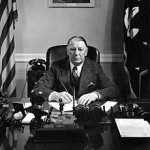 become was something we found quite interesting.
become was something we found quite interesting.
That said, I now find something new to draw my interest…namely Navy Secretary Frank Knox. One thing I have noticed is that in many families, certain names seem to be used over and over. In Bob’s family, there is a Frank Knox, and in that lineage there are Williams and Johns. The same is the case with Navy Secretary Frank Knox’s lineage. For that reason, I expect that a connection exists, and with a little work, I think I will find it, if it exists. I like the challenges that come from trying to connect the missing links in our family, and when I can tie it to something I have personally seen, it is an even more exciting quest.
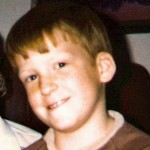 In the relatively short time that our family has really reconnected with our cousins on my dad’s side, I feel very blessed to have had the opportunity to get to know my cousin Shawn Fredrick. I have to say that his personality has been such a pleasant surprise. For some reason I always thought of Shawn as really shy and serious, but now I know that he has an amazing sense of humor, and a real talent for history, especially family history. I think that part is in his blood. His grandma, my Aunt Laura Spencer Fredrick, and his great uncle, my Uncle Bill Spencer, have been studying family history for a long time…as have his Uncle Dennis Fredrick, and his dad, Gene Fredrick, both of whom are my cousins, and of course, his older brother, Tim Fredrick. I’m sure that Shawn and Tim got into the history about the same time, with their dad’s interest in it, and he was helping Uncle Bill with copies, layouts, scanning, and researching. Nevertheless, once you start looking at family history, it is very easy to become additced to it…I should know.
In the relatively short time that our family has really reconnected with our cousins on my dad’s side, I feel very blessed to have had the opportunity to get to know my cousin Shawn Fredrick. I have to say that his personality has been such a pleasant surprise. For some reason I always thought of Shawn as really shy and serious, but now I know that he has an amazing sense of humor, and a real talent for history, especially family history. I think that part is in his blood. His grandma, my Aunt Laura Spencer Fredrick, and his great uncle, my Uncle Bill Spencer, have been studying family history for a long time…as have his Uncle Dennis Fredrick, and his dad, Gene Fredrick, both of whom are my cousins, and of course, his older brother, Tim Fredrick. I’m sure that Shawn and Tim got into the history about the same time, with their dad’s interest in it, and he was helping Uncle Bill with copies, layouts, scanning, and researching. Nevertheless, once you start looking at family history, it is very easy to become additced to it…I should know.
I find, the more I get to know Shawn, that we think a lot alike…especially politically, which I love, but for the sake of my friends who disagree with me politically, I won’t go into now. Nevertheless, I think Shawn and I have a similar sense of humor too, because we also seem to find the same things funny. Shawn likes trivia, which is, in my opinion, a lot of fun too. I love to see what might have happened on a certain day in history, or even just learn about unusual facts. I think Shawn is a lot like that too, because of the things he posts on Facebook. I really like the way Shawn explains the things he is telling you about. He is very thorough, and when he is done telling you the story, you really feel like you know what was going on. Not everyone has the ability to tell a story in a way that makes you feel like you are there too.
I think both Shawn and Tim are very intelligent men, and both are very excellent computer programmers, but they both also love woodworking, which is another thing that is in their genes, through their dad, Gene, grandfather Fritz Fredrick, and great grandfather, Allen Luther Spencer, and probably other people on the Fredrick side of the family too. Their dad made beautiful dressers, desks, and cabinets, and taught them how to  make them too. Still, I’m not sure that just anyone could learn that. I believe it takes a bit of inherited talent too. I am not sure that I could make anything that would look like it was anything much, and that is one area that Shawn and I differ greatly. Of course, not all of his projects are geared toward beauty, necessarily, some like the mirror that fell, are geared toward functionality, with a little humor mixed in, as you can see from Shawn’s comment about that project. “My mirror fell in the middle of the night and shattered so in the tradition of my father for sturdy building projects that never have to be fixed again, I just installed another one with drywall anchors rated at 60 pounds. Unless we have a 7.0 earthquake, it’s not coming down again in my lifetime” No, I’m sure it won’t Shawn. Like your brother said, “When Mt. Cheyenne suddenly and unexpectedly erupts and the pyroclastic flow brings down mirrors across the city, yours will be standing!” If you can pull that off, you are a great craftsman. Seriously though, Shawn is a very talented man, and I am proud to call him my cousin.
make them too. Still, I’m not sure that just anyone could learn that. I believe it takes a bit of inherited talent too. I am not sure that I could make anything that would look like it was anything much, and that is one area that Shawn and I differ greatly. Of course, not all of his projects are geared toward beauty, necessarily, some like the mirror that fell, are geared toward functionality, with a little humor mixed in, as you can see from Shawn’s comment about that project. “My mirror fell in the middle of the night and shattered so in the tradition of my father for sturdy building projects that never have to be fixed again, I just installed another one with drywall anchors rated at 60 pounds. Unless we have a 7.0 earthquake, it’s not coming down again in my lifetime” No, I’m sure it won’t Shawn. Like your brother said, “When Mt. Cheyenne suddenly and unexpectedly erupts and the pyroclastic flow brings down mirrors across the city, yours will be standing!” If you can pull that off, you are a great craftsman. Seriously though, Shawn is a very talented man, and I am proud to call him my cousin.
 For a girl, turning twelve means that she is stepping into those teen and pre-teen years. For most of us, those years are tumultuous at best. We can’t decide if we like ourselves or hate ourselves. One minute we are sure that we must be the ugliest girl ever, and the next minute we look in the mirror, and there stands a girl who might just have some pretty features, after all. While this rite of passage is normal for girls of this age, it is not fun, so while I’m excited for the future of my grandniece, Raelynn Masterson, I also know that the road ahead will likely be a bit bumpy. Nevertheless, Raelynn has an advantage over me, in that she is a very pretty girl. Hmmm…maybe I haven’t moved past that stage…or maybe we never really do.
For a girl, turning twelve means that she is stepping into those teen and pre-teen years. For most of us, those years are tumultuous at best. We can’t decide if we like ourselves or hate ourselves. One minute we are sure that we must be the ugliest girl ever, and the next minute we look in the mirror, and there stands a girl who might just have some pretty features, after all. While this rite of passage is normal for girls of this age, it is not fun, so while I’m excited for the future of my grandniece, Raelynn Masterson, I also know that the road ahead will likely be a bit bumpy. Nevertheless, Raelynn has an advantage over me, in that she is a very pretty girl. Hmmm…maybe I haven’t moved past that stage…or maybe we never really do.
Of course, looks are not the only things on Raelynn’s mind. She is a resourceful girl. She is interested in how things work, and in making things better in her world. I suppose that is why she decided to run for class  secretary at school last year. She wanted to be able to affect changes in areas where they were needed. She is a thinker. She sees a problem, and thinks things through to come up with the best solution. Those are the kinds of people we need in politics…honest, concerned, and logical. Maybe we need to have her run for president of the United States. She would do a far better job that our current president, if you ask me.
secretary at school last year. She wanted to be able to affect changes in areas where they were needed. She is a thinker. She sees a problem, and thinks things through to come up with the best solution. Those are the kinds of people we need in politics…honest, concerned, and logical. Maybe we need to have her run for president of the United States. She would do a far better job that our current president, if you ask me.
Raelynn is a smart girl. She like to play chess with her Uncle Dave Chase…a game that takes forethought and good strategy skills. I’m not sure how often she beats him, but just being able to play Chess is a skill that many people don’t have. I used to play it, years ago, but I haven’t played in so long, that I’m not even sure I remember how anymore. Raelynn is growing up so fast that sometimes she seems much older that her young years…another anomaly that seems to happen about this age, whether it is because they are maturing so fast,  or that they want to be grown up already. They definitely seem to be twelve, going on…
or that they want to be grown up already. They definitely seem to be twelve, going on…
Still, no matter how old Raelynn gets, she will always be her daddy’s girl. She and my nephew, Rob Masterson have such a close relationship. She is close with her mom, Dustie Masterson too, but for a lot of girls, being a Daddy’s Girl is simply the way it is. Raelynn also loves her siblings. She looks up to her older sister, Christina Masterson, and is a great role model for her younger siblings, Matthew and Audrianna Masterson. She is a great big sister, and she makes life fun for all who know her. Today is Raelynn’s 12th birthday. Happy birthday Raelynn!! Have a great day!! We love you!!
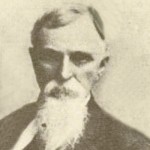 When I first read about the six Knox brothers who were able to place themselves into a family history where they belonged, but in which no one had been able to connect them to before, I was intrigued, for sure. They seemed so resourceful, but I had a feeling that there was a lot more to them than just finding their place in the family history. I’m sure I will come back to these brothers over and over in the future, but when I read about Dr Nicholas C Knox, I was…well, amazed really. This man had the character and fortitude to overcome adversity, and move forward with his life, and in the end, make it better.
When I first read about the six Knox brothers who were able to place themselves into a family history where they belonged, but in which no one had been able to connect them to before, I was intrigued, for sure. They seemed so resourceful, but I had a feeling that there was a lot more to them than just finding their place in the family history. I’m sure I will come back to these brothers over and over in the future, but when I read about Dr Nicholas C Knox, I was…well, amazed really. This man had the character and fortitude to overcome adversity, and move forward with his life, and in the end, make it better.
The fourth son of Absalom Knox MD, Nicholas married Henrietta Craigan. After their marriage, the civil war slammed its way into the midst of their lives. Nicholas enlisted in the Seventeenth Mississippi Regiment, which was commanded by Colonel WS Featherstone, and was a part of McLaw’s Division. Nicholas took part in all the great battles in the Army of Virginia in which his command was engaged, but it was the Battle of Gettysburg that would change his life forever. On the second day of the battle, Nicholas lost his right arm. To make matter worse, he was captured and confined as a prisoner on Hart Island, off the city of New York, for several months before being parolled and sent into the Confederate lines again…without his right arm, and he managed to stay alive during the remainder of the battles he fought in.
During his entire enlistment time in the Civil War, Nicholas was never home…until the day he was discharged. I don’t know if he had been able to tell his wife about his arm, but even if he did, there is nothing like actually seeing it for the first time. It had to be hard for her…and for him. Many soldiers coming home from wars with life changing injuries feel very concerned about just how their spouse will look at them now. They feel like they are a lesser person than they were when they left, and that is just the physical challenges. I’m sure that an injury that cost you your arm, would be a moment that would live in your memory files for the rest of your life.
Nevertheless, Nicholas was not a man to let adversity take his life or his future from him. He returned to Mississippi, and he started the task of rebuilding his life, and getting reacquainted with his family. He started out by teaching school. Now most people would think that was a noble profession, and they would be right, but 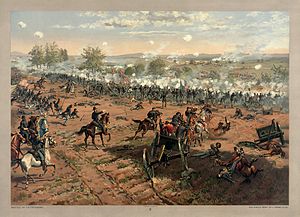 it was not enough for Nicholas. While teaching school, he began to study medicine, and received a diploma from a medical college at Nashville, Tennessee. When I think about the challenges of being a doctor in post Civil War America, with only one arm, and during a time when prosthetics were primitive at best, I am amazed. Still, Nicholas was not satisfied. He entered politics, and represented his county in the Legislature, and afterward was a practitioner of medicine in Reynolds, Mississippi, and he was an elder in the Presbyterian Church. No matter what challenges hit Nicholas, he met them head on, and succeeded in every endeavor he took on. He was not a man content to settle on the ordinary. He was truly an amazing man.
it was not enough for Nicholas. While teaching school, he began to study medicine, and received a diploma from a medical college at Nashville, Tennessee. When I think about the challenges of being a doctor in post Civil War America, with only one arm, and during a time when prosthetics were primitive at best, I am amazed. Still, Nicholas was not satisfied. He entered politics, and represented his county in the Legislature, and afterward was a practitioner of medicine in Reynolds, Mississippi, and he was an elder in the Presbyterian Church. No matter what challenges hit Nicholas, he met them head on, and succeeded in every endeavor he took on. He was not a man content to settle on the ordinary. He was truly an amazing man.

